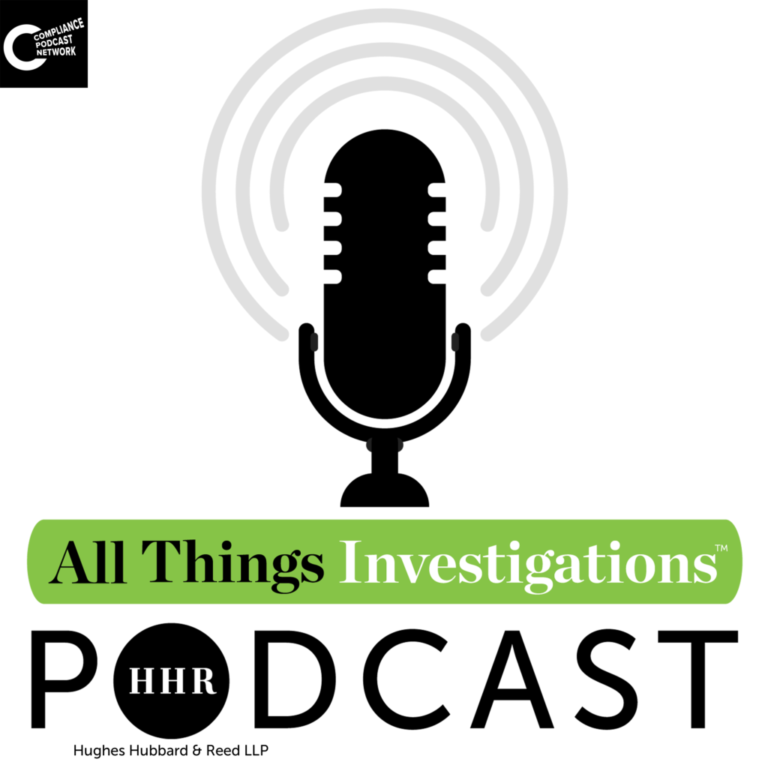How can companies effectively remediate after uncovering misconduct? In this episode of All Things Investigations, Tom Fox discusses with Mike DeBernardis the lessons learned from the recent Albemarle FCPA enforcement action and settlement. They analyze the company’s self-disclosure timeline, the credit received for holdbacks, and the overall cooperation and remediation efforts that led to a favorable NPA.
Mike DeBernardis is a partner in Hughes Hubbard’s Washington office and a member of the firm’s Anti-Corruption and Internal Investigations and White Collar & Regulatory Defense practice groups. He assists clients with internal investigations relating to high-stakes matters, including corruption under the Foreign Corrupt Practices Act, procurement fraud, financial and accounting fraud, money laundering, and other ethics issues and violations of company policy.
You’ll hear Tom and Mike discuss:
- The DOJ deemed Albemarle’s self-disclosure untimely, even though it was voluntary and unknown to the government. The 16-month delay from learning of allegations to disclosing crossed the line per updated standards.
- Companies should carefully evaluate timing when self-disclosing misconduct if they want to maximize credit. Even voluntary disclosures can be considered untimely under an evolving reasonableness standard.
- Albemarle discovered allegations in Vietnam in 2016, confirmed misconduct in early 2017, and then disclosed in January 2018 when FCPA Corporate Enforcement Policy permanence was still uncertain.
- $780,000 in total bonuses were held back from employees directly involved, those with supervisory responsibility, and other relevant staff. Albemarle received a full 1:1 penalty offset.
- Contractual ability to withhold bonus payments is easier to execute than clawbacks of compensation already disbursed, especially across regions.
- Settlement dynamics were shifting during Albemarle’s decision timeline, but current standards still applied for judging timeliness. Pandemic delays also won’t change future judgments.
- The egregiousness and duration of Albemarle’s schemes across multiple countries involving high-level executives would typically warrant a DPA or plea deal. Their cooperation and remediation directly led to the NPA result.
- Albemarle thoroughly investigated, cooperated, remediated, and self-disclosed even though the misconduct was not yet government-known. This approach clearly benefited them.
- Implementing data analytics was called out in the settlement documents specifically. Even basic initial steps were still recognized and rewarded by the DOJ.
KEY QUOTES:
“And I think the lesson from this is doing something is better than doing nothing. Start to find ways. Work with your very smart people to find ways to incorporate some of the compliance data you have and find ways to use that to your benefit.” – Mike DeBernardis
“One of the things that companies don’t think about enough in these situations in the journey of Remediation is what business changes can we make? Because I think that could be really impactful, a really impactful, persuasive position is to say this company is different than the one who engaged in the conduct for various reasons.” – Mike DeBernardis
“And then the fact they self-disclosed, they really did everything right except in the DOJ’s mind, waited just a little bit too long before they self-disclosed.” – Mike DeBernardis
Resources:
Hughes Hubbard & Reed website
Mike DeBernardis on LinkedIn



